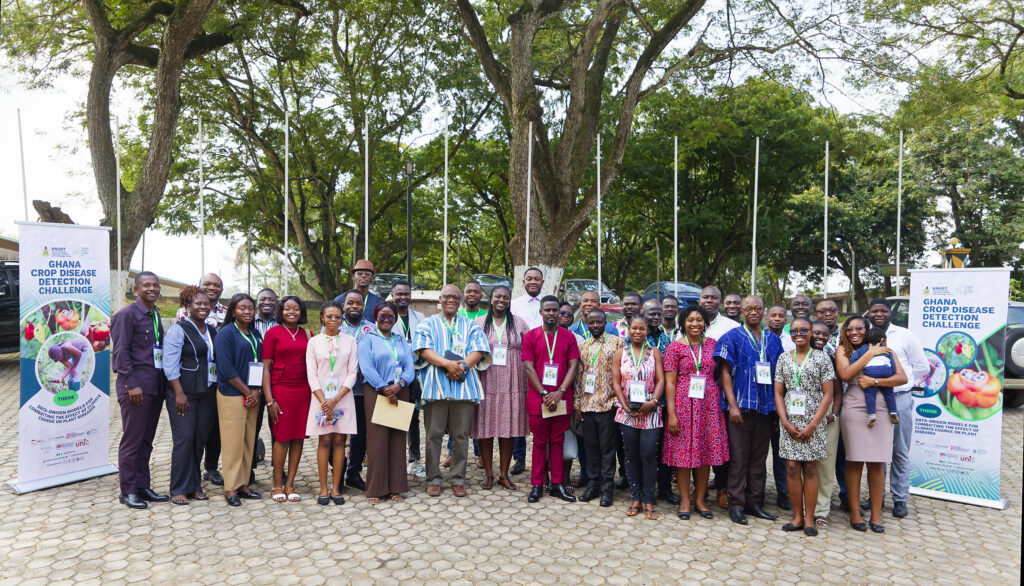The Ghana Crop Disease Detection Challenge Ecosystem Event, held on November 26, 2024, at the IDL Conference Room, brought together a diverse group of stakeholders to discuss and share ideas on innovative data-driven solutions for combatting the impacts of climate change on crop diseases. The event, organised by the Responsible AI Lab (RAIL) and FAIR Forward (GIZ), gathered participants from renowned institutions, including the Crop Research Institute (CRI) under the Council for Scientific and Industrial Research (CSIR), the Ministry of Food and Agriculture, Plant Protection and Regulation Services Directorate (PPRSD), Sesi Technologies, Smartfarms Technologies, KaraAgro AI, and many others.
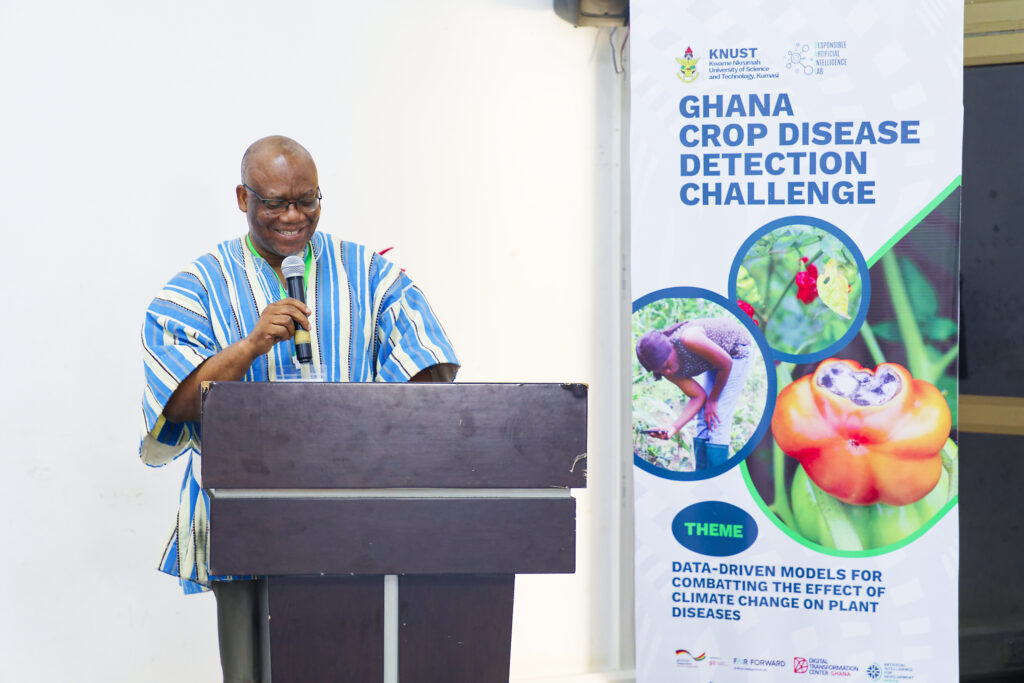
Prof. Jerry John Kponyo, Principal Investigator and Scientific Director of RAIL emphasised the importance of partnerships in alignment with Sustainable Development Goal (SDG) 17. He noted that the gathering represented a collaborative effort to develop AI-driven solutions to mitigate the effects of climate change on crop diseases. He remarked, “Let today mark the beginning of deeper collaborations that will redefine agriculture and foster sustainable development.”
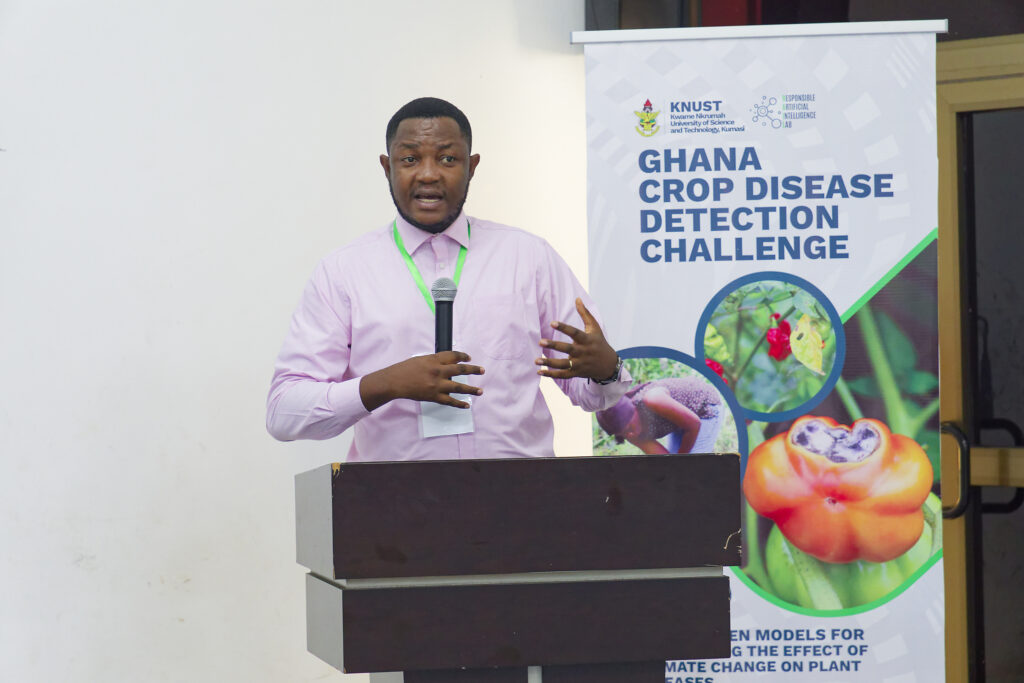
Elikplim Sabblah, Technical Advisor for FAIR Forward (GIZ), highlighted his team’s focus on supporting data collection activities and policy frameworks to leverage AI to solve farmers’ challenges. “This ecosystem event is about exchanging ideas and creating actionable strategies to empower farmers with innovative tools,” he stated.
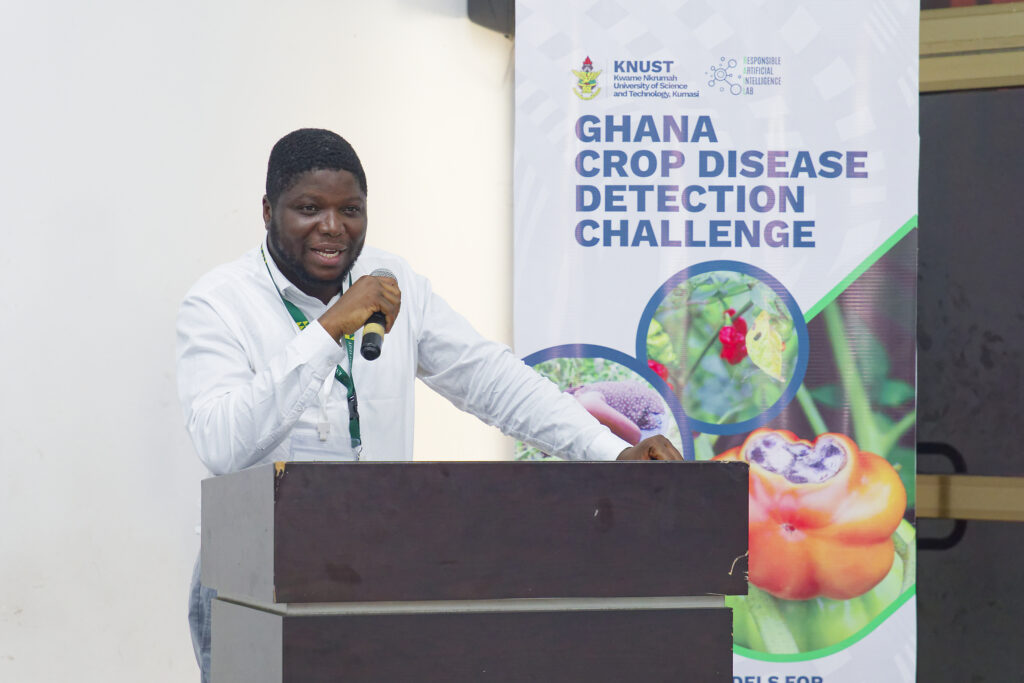
Dr Eric Tutu Tchao, Agriculture and Food Security Team Lead for RAIL, outlined the event’s objectives, stressing the importance of strategic partnerships to refine existing solutions and develop new ones. The event focused on three critical themes:
- The Impact of Climate Change on Crop Diseases in Smallholder Farming Systems
- Challenges in Crop Disease Research and Management in Rubber Plantations
- Digital Tools for Pests and Disease Management in Smallholder Farms
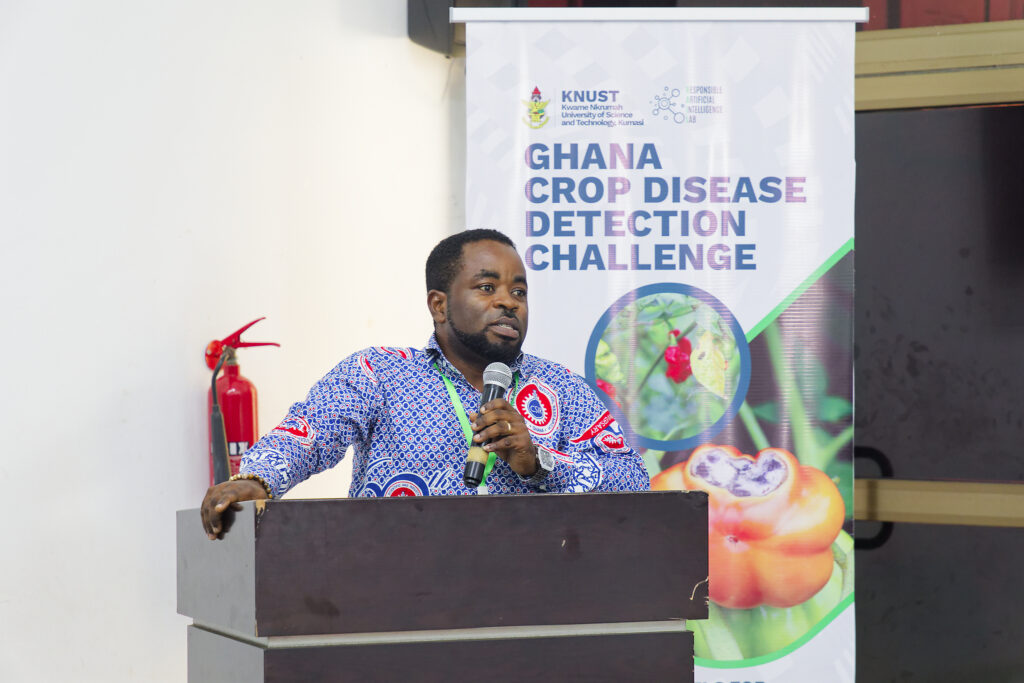
Dr. Ernest Baafi, Deputy Director at CRI, gave an insightful presentation on the connection between climate change and crop diseases. He outlined how rising temperatures, erratic rainfall, and other climatic changes exacerbate disease outbreaks, leading to reduced yields, increased costs for disease management, and threats to livelihoods and food security. He recommended adopting climate-smart agricultural practices, such as integrated disease management and called for increased funding for climate adaptation and research development.
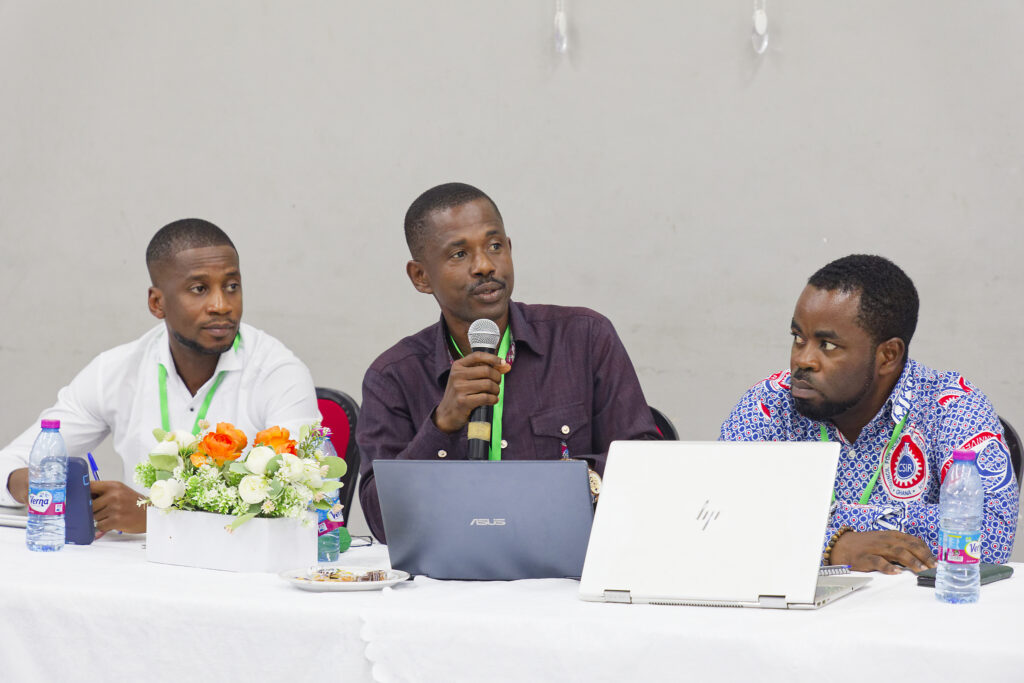
Dr. Erasmus Tetteh and Dr. Caleb Melenya Ocansey shared their research on crop diseases affecting rubber plantations in Ghana. They discussed the economic importance of rubber, its challenges with diseases such as fomes (root rot disease) and the need for predictive models to assess climate patterns affecting rubber yields.
Dr. Sonia Semedo, an ARISE-PP Fellow with the African Academy of Sciences, presented digital tools for combatting fall armyworms and other pests in smallholder farms in Cabo Verde. Her presentation highlighted how AI-powered tools can improve pest detection and management to secure farmers’ livelihoods.
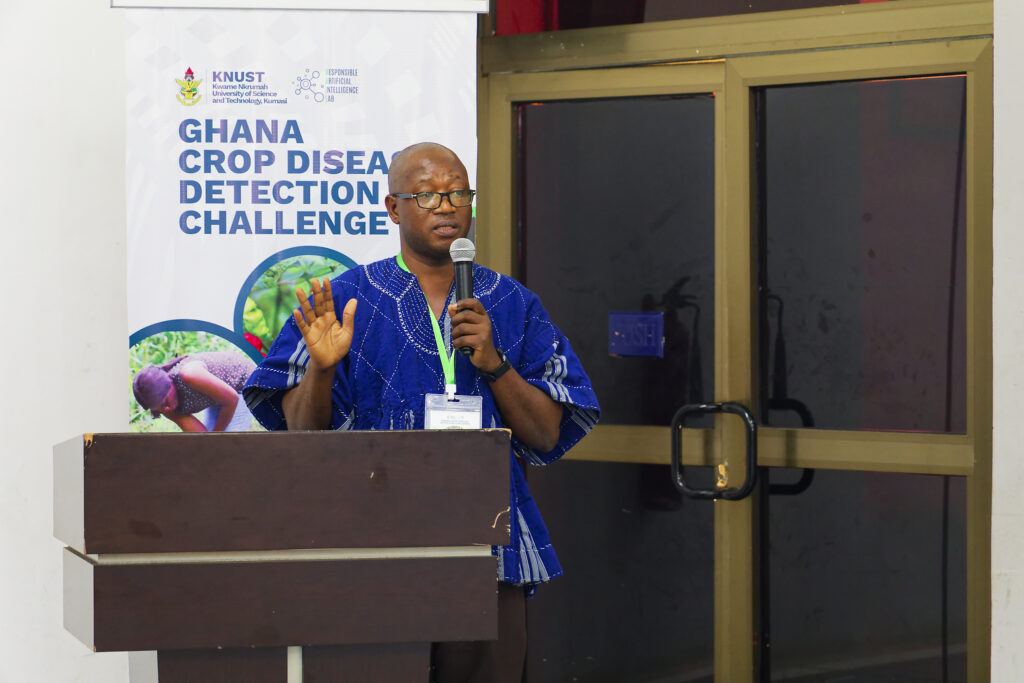
Dr Patrick Mensah from the University of Energy and Natural Resources showcased the Ghana Crop Disease Web and Mobile App, which integrates AI to provide farmers with timely disease detection and management advice.
Paul Mensah and Emmanuella Odoom, representing Smartfarm Technologies, introduced their AI-powered Early Disease Detection App for cassava plants. They emphasised how such tools empower farmers by providing real-time data to manage crop health.
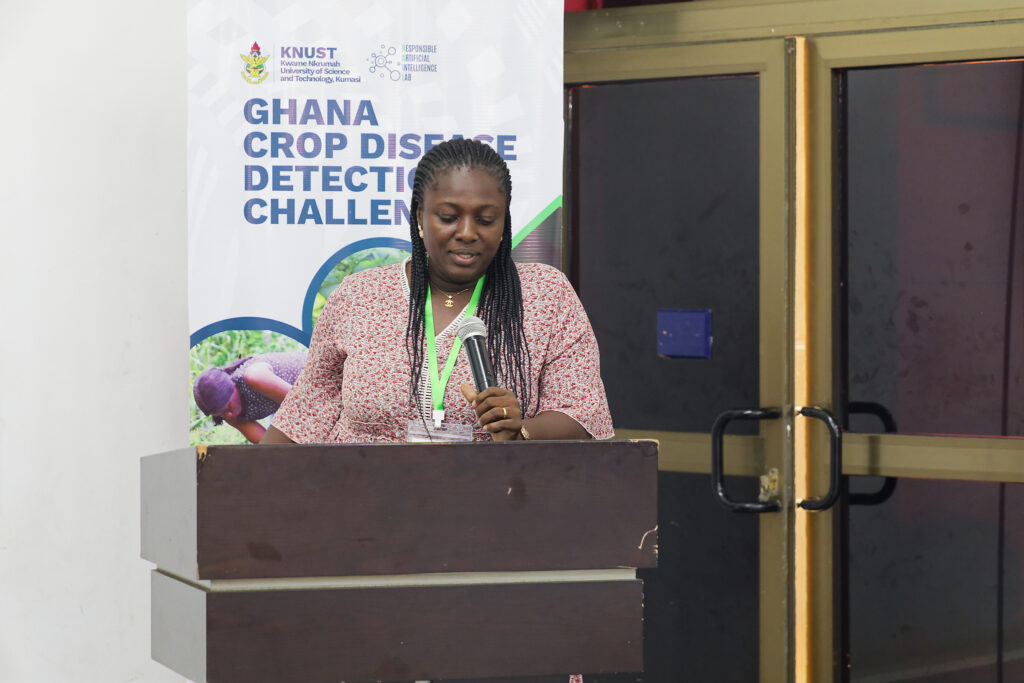
Akua Tiwaa Sebe, Head of PPRSD for the Ashanti Region, highlighted the regulatory challenges surrounding crop disease datasets. While AI tools are becoming invaluable in disease forecasting, she stressed the need for accurate datasets to improve model reliability and usability. She called on developers to design intuitive tools tailored to farmers’ needs and suggested solutions to address off-season cultivation challenges.
Prof. Kponyo, in his closing remarks, reiterated the need for simple, farmer-friendly AI solutions and emphasised involving end-users throughout the development process. “We must create enabling environments for innovation and collaboration to thrive,” he stated. He called for partnerships that transcend institutional boundaries, emphasising that achieving the SDGs requires collective action.
